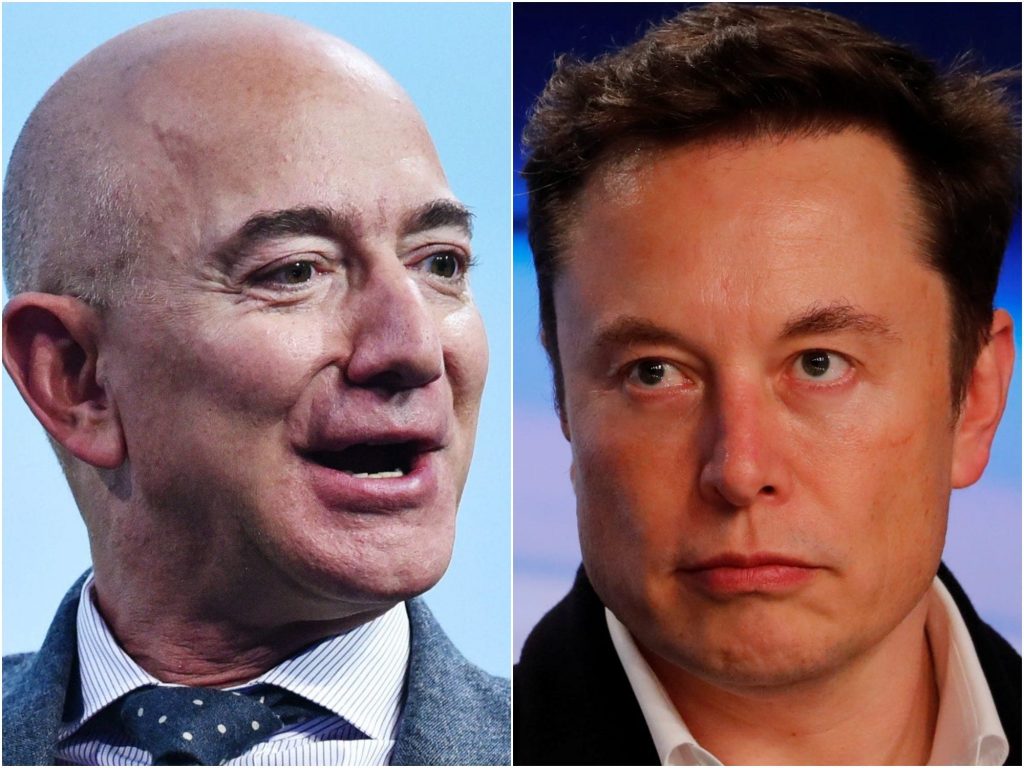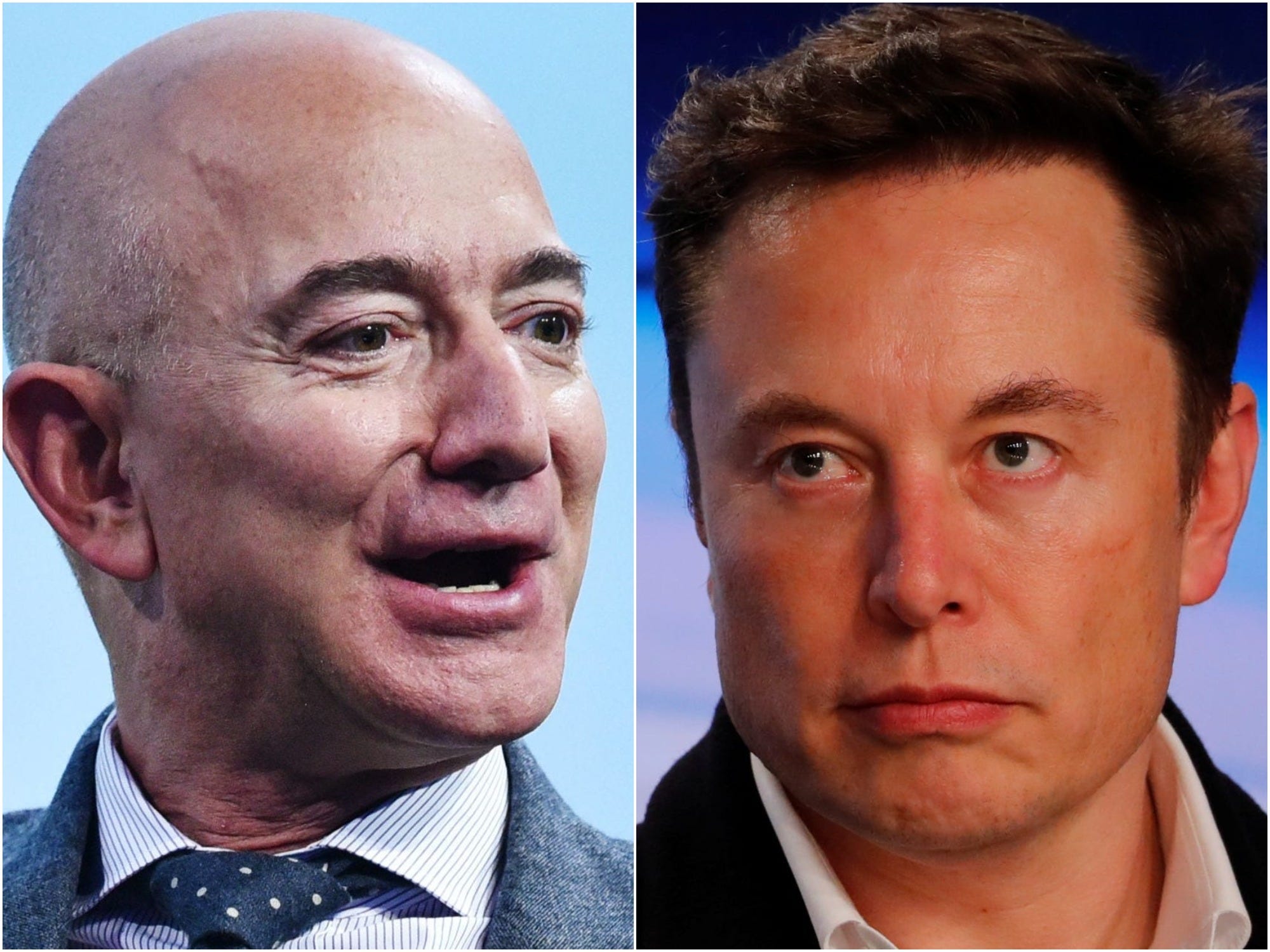
MANDEL NGAN/AFP via Getty Images; Joe Skipper/Reuters
- Blue Origin seems to have a new strategy for boosting its image and trashing competitors: salty graphics.
- The rocket company posted jabs at SpaceX and NASA online after NASA snubbed its lunar lander.
- Blue Origin previously fired shots at Virgin Galactic.
- See more stories on Insider's business page.
Blue Origin, the rocket company founded by Jeff Bezos in 2000, is being salty online after NASA snubbed it for a contract to land astronauts on the moon.
Instead, NASA chose SpaceX to put the first boots on the lunar surface since 1972. It awarded the company, which Elon Musk founded in 2002, an exclusive contract to turn its Starship vehicle into a lunar lander.
In response, Blue Origin called Starship "immensely complex and high-risk" and said NASA made the "wrong" decision. The company recently updated its website to include a graphic that compares Starship unfavorably to Blue Origin's Blue Moon lunar lander.
-Adrian Beil (@BCCarCounters) August 4, 2021
Blue Origin appears to be, at minimum, cherry picking its comparisons. The graphic notes that the Starship-Super Heavy system hasn't launched yet. Starship has launched six miles into the air on several occasions, but not with its Super Heavy booster. It also points out that SpaceX's Starship facilities in Boca Chica, Texas have never accommodated an orbital launch. Blue Origin, though has never launched any rocket to orbit from anywhere.
The graphic doesn't, however, note the cost of the Starship lunar lander. SpaceX's proposal estimates that it will cost NASA $2.9 billion, while Blue Origin's gave a price of $5.9 billion.
NASA was originally expected to award contracts to two companies, but cited a lack of funding from Congress in its decision to give SpaceX the sole contract in April. Blue Origin and Dynetics, another competitor for the contract, filed formal protests. Those complaints forced SpaceX to pause work on its Starship lunar lander.
Bezos, who flew to the edge of space aboard Blue Origin's New Shepard rocket last month, even offered to pay for $2 billion of the project if NASA would award his company a contract.
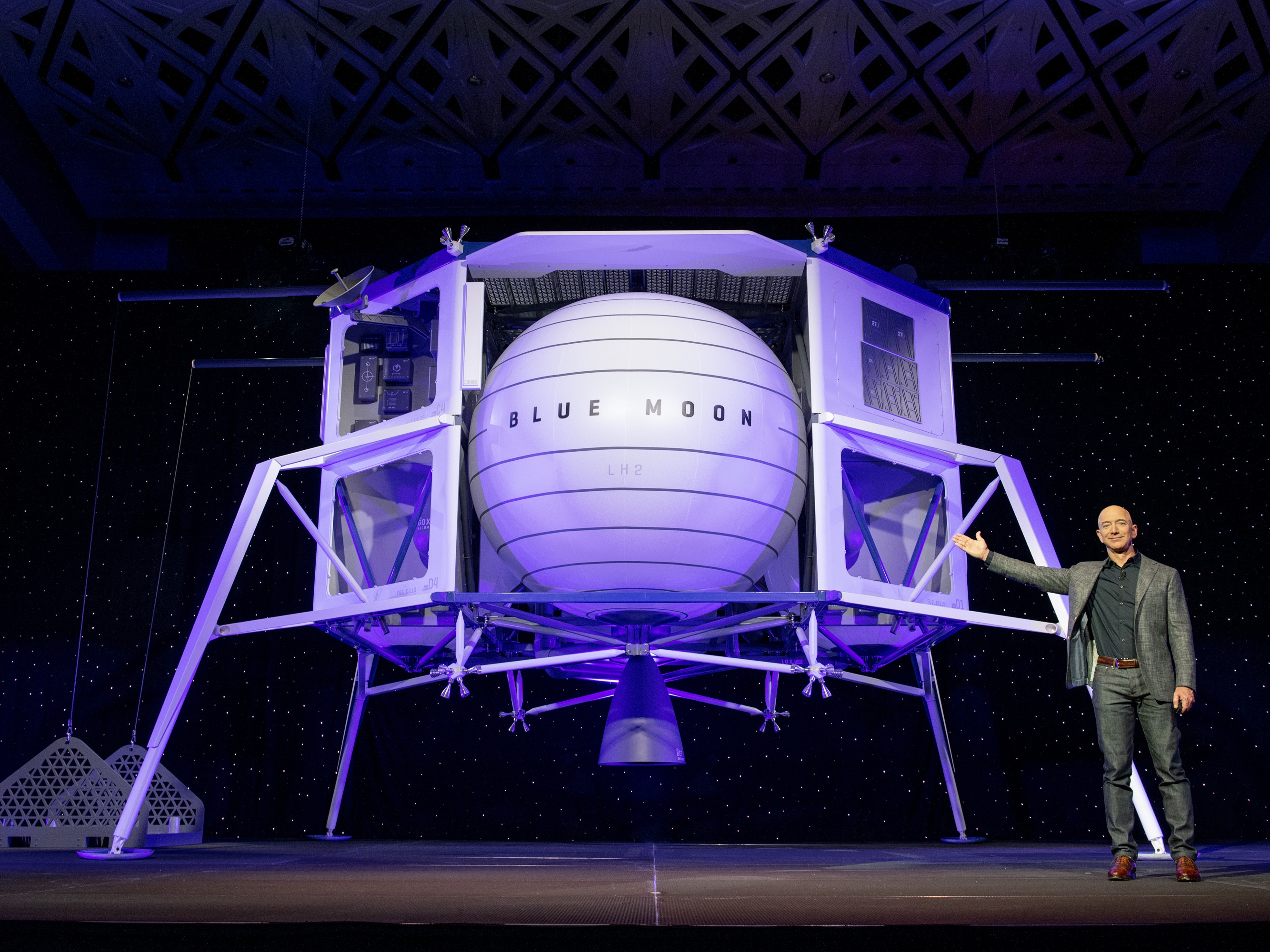
Blue Origin
Still, NASA declined. The US Government Accountability Office upheld NASA's decision and turned down the protests on Friday.
Shortly afterwards, Blue Origin published its new graphic. But it wasn't the first time the company has put out infographics criticizing its competitors.
Blue Origin also published a snarky graphic about Virgin Galactic
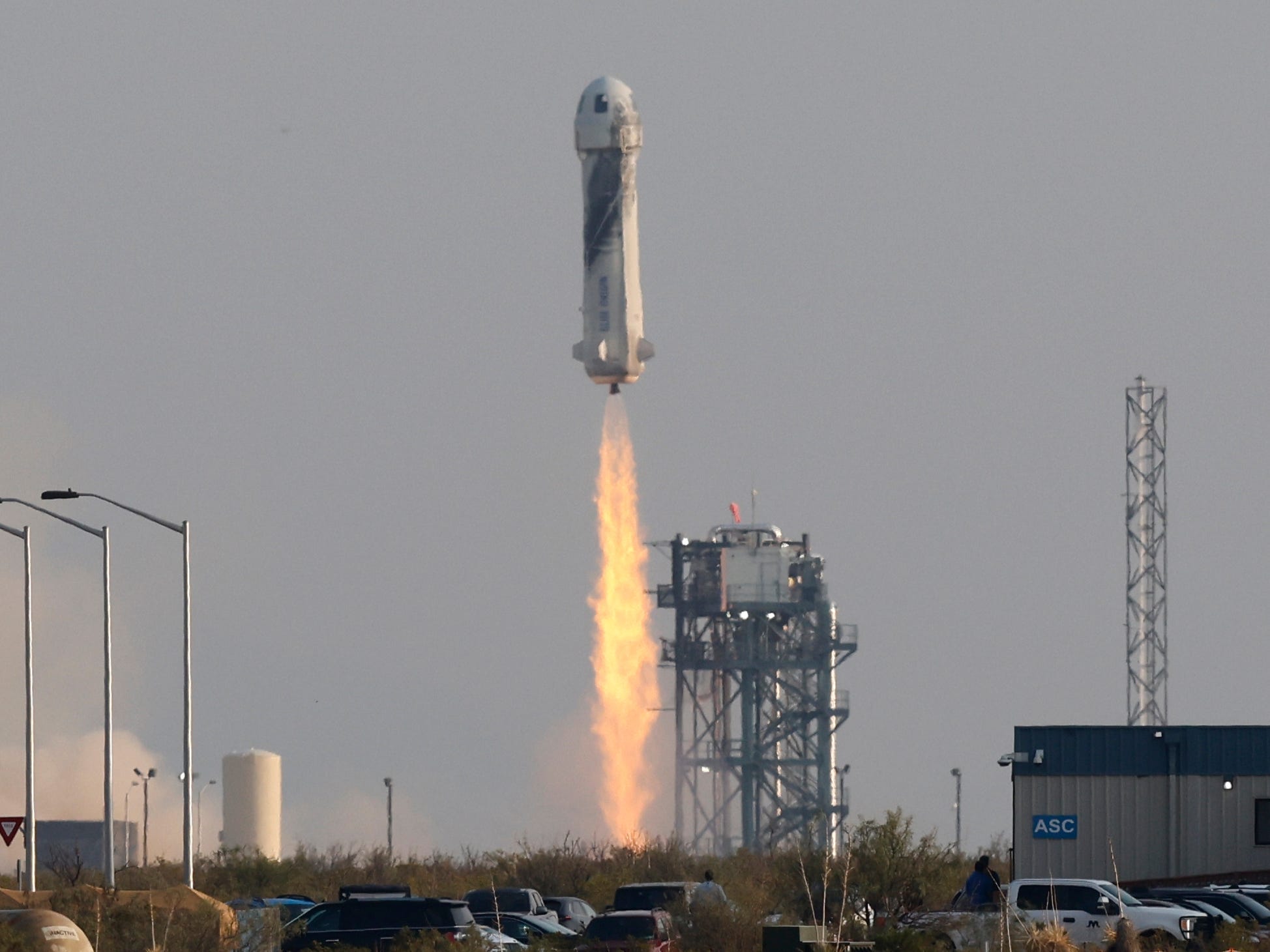
Joe Skipper/Reuters
Blue Origin pioneered this new method of promoting itself (and knocking competitors) last month.
A few weeks after Bezos revealed that he planned to fly to the edge of space, Virgin Galactic founder Richard Branson announced that he'd be going aboard his own company's space plane - with liftoff scheduled just nine days before Bezos. Shortly before Branson's flight, Blue Origin posted a chart comparing the two flights on Twitter. The graphic points out that New Shepard has bigger windows and flies higher than Virgin Galactic's space plane.
-Blue Origin (@blueorigin) July 9, 2021
Still, even though Branson beat Bezos to the edge of space, the Amazon founder has a special rivalry with Elon Musk. The two have similar ambitions - to establish human settlements in space - but have sparred over their competing companies since 2013, when SpaceX tried to get exclusive use of a NASA launchpad and Blue Origin filed a protest. The companies have also battled over patents, and Bezos and Musk have made repeated jabs at one another on Twitter and in media interviews.
Now, SpaceX is becoming a NASA favorite. Its Crew Dragon spaceship is regularly ferrying astronauts to and from the International Space Station. Just three days after Bezos's launch, the agency awarded SpaceX a $178 million contract to launch its mission to Jupiter's ocean moon Europa.
Blue Origin, meanwhile, hasn't yet launched a rocket to orbit. Its vehicles can skim the edge of space for a few minutes before falling back down, but they aren't strong enough to push themselves to orbital heights.
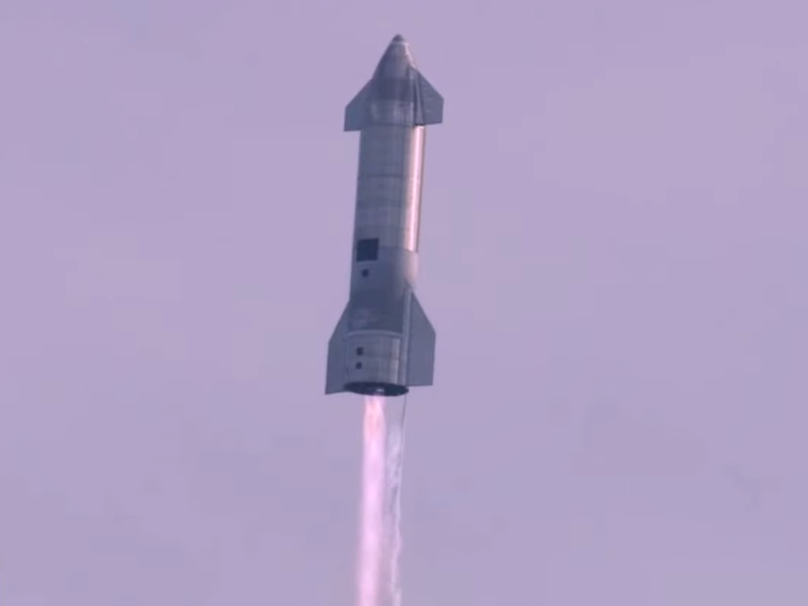
SpaceX
Blue Origin - which Bezos has called his "most important work" - published more than the graphic. On the same webpage, Blue Origin also put up three single-page letters criticizing NASA's decision and pleading with Congress to make the agency pick a second provider for its lunar lander.
The letters say that NASA's process was "flawed," "inconsistent," "unfair," and "ignored the significant risks" of choosing just one provider.

